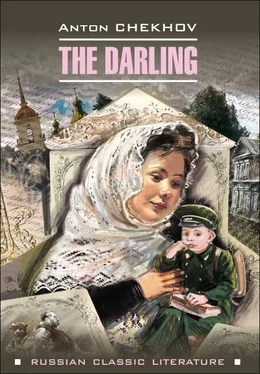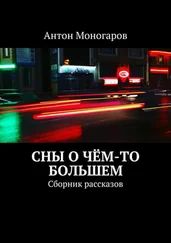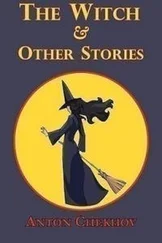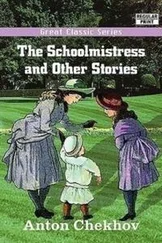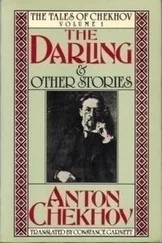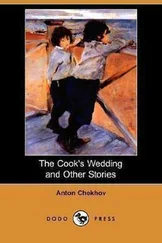Антон Чехов - The darling / Душечка. Сборник рассказов
Здесь есть возможность читать онлайн «Антон Чехов - The darling / Душечка. Сборник рассказов» — ознакомительный отрывок электронной книги совершенно бесплатно, а после прочтения отрывка купить полную версию. В некоторых случаях можно слушать аудио, скачать через торрент в формате fb2 и присутствует краткое содержание. Год выпуска: 2019, ISBN: 2019, Издательство: Литагент Каро, Жанр: Классическая проза, Русская классическая проза, Прочая научная литература, на английском языке. Описание произведения, (предисловие) а так же отзывы посетителей доступны на портале библиотеки ЛибКат.
- Название:The darling / Душечка. Сборник рассказов
- Автор:
- Издательство:Литагент Каро
- Жанр:
- Год:2019
- ISBN:978-5-9925-1149-9
- Рейтинг книги:5 / 5. Голосов: 1
-
Избранное:Добавить в избранное
- Отзывы:
-
Ваша оценка:
- 100
- 1
- 2
- 3
- 4
- 5
The darling / Душечка. Сборник рассказов: краткое содержание, описание и аннотация
Предлагаем к чтению аннотацию, описание, краткое содержание или предисловие (зависит от того, что написал сам автор книги «The darling / Душечка. Сборник рассказов»). Если вы не нашли необходимую информацию о книге — напишите в комментариях, мы постараемся отыскать её.
The darling / Душечка. Сборник рассказов — читать онлайн ознакомительный отрывок
Ниже представлен текст книги, разбитый по страницам. Система сохранения места последней прочитанной страницы, позволяет с удобством читать онлайн бесплатно книгу «The darling / Душечка. Сборник рассказов», без необходимости каждый раз заново искать на чём Вы остановились. Поставьте закладку, и сможете в любой момент перейти на страницу, на которой закончили чтение.
Интервал:
Закладка:
his father used to go off every day to inspect cattle, and would often be away from home for three days together, and it seemed to Olenka as though Sasha was entirely abandoned, that he was not wanted at home, that he was being starved, and she carried him off to her lodge and gave him a little room there.
And for six months Sasha had lived in the lodge with her. Every morning Olenka came into his bedroom and found him fast asleep, sleeping noiselessly with his hand under his cheek. She was sorry to wake him.
“Sashenka,” she would say mournfully, “get up, darling. It’s time for school.”
He would get up, dress and say his prayers, and then sit down to breakfast, drink three glasses of tea, and eat two large cracknels and a half a buttered roll. All this time he was hardly awake and a little ill-humoured in consequence.
“You don’t know your fable yet, Sashenka,” Olenka would say, looking at him as though he were about to set off on a long journey. “What a lot of trouble I have with you! You must work and do your best, darling, and obey your teachers.”
“Oh, do leave me alone!” Sasha would say.
Then he would go down the street to school, a little figure, wearing a big cap and carrying a satchel on his shoulder. Olenka would follow him noiselessly.
“Sashenka!” she would call after him, and she would pop into his hand a date or a caramel. When he reached the street where the school was, he would feel ashamed of being followed by a tall, stout woman, he would turn round and say:
“You’d better go home, auntie. I can go the rest of the way alone.”
She would stand still and look after him fixedly till he had disappeared at the school-gate.
Ah, how she loved him! Of her former attachments not one had been so deep; never had her soul surrendered to any feeling so spontaneously, so disinterestedly, and so joyously as now that her maternal instincts were aroused. For this little boy with the dimple in his cheek and the big school cap, she would have given her whole life, she would have given it with joy and tears of tenderness. Why? Who can tell why?
When she had seen the last of Sasha, she returned home contented and serene brimming over with love; her face, which had grown younger during the last six months, smiled and beamed; people meeting her looked at her with pleasure.
“Good morning, Olga Semyonovna, darling. How are you, darling?”
“The lessons at the high school are very difficult now,” she would relate at the market. “It’s too much; in the first class yesterday they gave him a fable to learn by heart, and a Latin translation and an arithmetic task. You know it’s too much for a little chap.”
And she would begin talking about the teachers, the lessons, and the school books, saying just what Sasha said.
At three o’clock they had dinner together: in the evening they learned their lessons together and cried. When she put him to bed, she would stay a long time making the cross over him and murmuring a prayer; then she would go to bed and dream of that far-away misty future when Sasha would finish his studies and become a doctor or an engineer, would have a big house of his own with horses and a carriage, would get married and have children … She would fall asleep still thinking of the same thing, and tears would run down her cheeks from her closed eyes, while the black cat lay purring beside her: “Mrr, mrr, mrr.”
Suddenly there would come a loud knock at the gate.
Olenka would wake up breathless with alarm, her heart throbbing. Half a minute later would come another knock.
“It must be a telegram from Harkov,” she would think, beginning to tremble from head to foot. “Sasha’s mother is sending for him from Harkov … Oh, God have mercy on us!”
She was in despair. Her head, her hands, and her feet would turn chilly, and she would feel that she was the most unhappy woman in the world. But another minute would pass, voices would be heard: it would turn out to be the veterinary surgeon coming home from the club.
“Well, thank God!” she would think.
And gradually the load in her heart would pass off and she would feel at ease. She would go back to bed thinking of Sasha, who lay sound asleep in the next room, sometimes crying out in his sleep:
“I’ll sack you! Get away! Shut up!”
ARIADNE
On the deck of a steamer sailing from Odessa to Sevastopol, a rather good-looking gentleman with a little round beard, came up to me to smoke, and said:
“Notice those Germans sitting near the shelter? Whenever Germans or Englishmen get together, they talk about the crops, the price of wool, or their personal affairs. But for some reason or other when we Russians get together we never discuss anything but women and abstract subjects – but especially women.”
This gentleman’s face was familiar to me already. We had returned from abroad the evening before by the same train, and at Volotchisk when the luggage was being examined by the Customs, I saw him standing with a lady, his travelling companion, in front of a perfect mountain of trunks and baskets filled with ladies’ clothes, and I noticed how embarrassed and downcast he was when he had to pay duty on some piece of silk frippery, and his companion protested and threatened to make a complaint. Afterwards, on the way to Odessa, I saw him carrying little pies and oranges to the ladies’ compartment.
It was rather damp; the vessel swayed a little and the ladies had retired to their cabins.
The gentleman with the little round beard sat down beside me and continued:
“Yes, when Russians come together they discuss nothing but abstract subjects and women. We are so intellectual, so solemn, that we utter nothing but truths and can discuss only questions of a lofty order. A Russian actor does not know how to be funny; he acts with profundity even in a farce. We’re just the same: when we have got to talk of trifles we treat them only from an exalted point of view. It comes from a lack of boldness, sincerity, and simplicity. We talk so often about women, I fancy, because we are dissatisfied. We take too ideal a view of women, and make demands out of all proportion with what reality can give us; we get something utterly different from what we want, and the result is dissatisfaction, shattered hopes, and inward suffering, and if any one is suffering, he’s bound to talk of it. It does not bore you to go on with this conversation, is it?
“No, not in the least.”
“In that case, allow me to introduce myself,” said my companion, rising from his seat a little:
“Ivan Ilyitch Shamohin, a Moscow landowner of a sort … You I know very well.”
He sat down and went on, looking at me with a genuine and friendly expression:
“A mediocre philosopher, like Max Nordau 6 6 Max Nordau – (1849–1923), a Hungarian author, physician
, would explain these incessant conversations about women as a form of erotic madness, or would put it down to our having been slave-owners and so on; I take quite a different view of it. I repeat, we are dissatisfied because we are idealists. We want the creatures who bear us and our children to be superior to us and to everything in the world. When we are young we adore and poeticize those with whom we are in love: love and happiness with us are synonyms. Among us in Russia marriage without love is despised, sensuality is ridiculed and inspires repulsion, and the greatest success is enjoyed by those tales and novels in which women are beautiful, poetical, and exalted; and if a Russian has been for years in ecstasies over Raphael’s Madonna, or is eager for the emancipation of women, I assure you there is no affectation about it. But the trouble is that when we have been married or been intimate with a woman for some two or three years, we begin to feel deceived and disillusioned: we pair off with others, and again – disappointment, again – repulsion, and in the long run we become convinced that women are lying, trivial, fussy, unfair, undeveloped, cruel – in fact, far from being superior, are immeasurably inferior to us men. And in our dissatisfaction and disappointment there is nothing left for us but to grumble and talk about what we’ve been so cruelly deceived in.”
Интервал:
Закладка:
Похожие книги на «The darling / Душечка. Сборник рассказов»
Представляем Вашему вниманию похожие книги на «The darling / Душечка. Сборник рассказов» списком для выбора. Мы отобрали схожую по названию и смыслу литературу в надежде предоставить читателям больше вариантов отыскать новые, интересные, ещё непрочитанные произведения.
Обсуждение, отзывы о книге «The darling / Душечка. Сборник рассказов» и просто собственные мнения читателей. Оставьте ваши комментарии, напишите, что Вы думаете о произведении, его смысле или главных героях. Укажите что конкретно понравилось, а что нет, и почему Вы так считаете.
